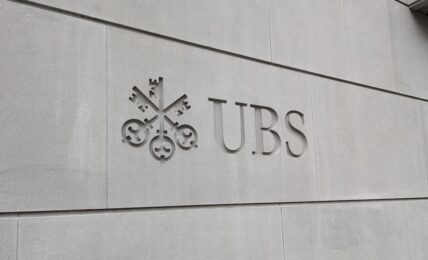A federal court in Australia assigned a record A$12.9 million (USD$8.9 million) penalty to Vanguard Investments Australia for misleading claims made by the investment management firm about one of its ESG funds, including failing to apply exclusionary screens to avoid investments in companies with fossil fuel activities, as claimed in its communication materials and disclosures.
The fund, the Vanguard Ethically Conscious Global Aggregate Bond Index Fund, was launched in 2018, offering investors with exposure to international fixed income investments, and claimed to apply screens to exclude companies with activities related to areas including fossil fuels, alcohol and tobacco, among others. The fund followed the Bloomberg Barclays MSCI Global Aggregate SRI Exclusions Float Adjusted Index, which Vanguard claimed excluded issuers with significant activities in these areas.
In a lawsuit launched last year by Australia’s corporate, markets, and financial services regulator, the Australian Securities & Investments Commission (ASIC), however, ASIC alleged that ESG research was not conducted over a significant proportion of the bond issuers in the fund, exposing investors to investments with ties to fossil fuels, including issuers such as Chevron Phillips Chemical and Abu Dhabi Crude Oil Pipeline, among others.
Following the launch of the suit in 2023, Vanguard said that it self-identified and self-reported to ASIC in early 2021, after discovering that the descriptions of the exclusionary screens made by the index provider and in Vanguard’s disclosure statements “did not provide a sufficiently detailed explanation that certain debt issuers lacking research coverage were still included in the benchmark,” making it possible for the fund to hold securities “that may not have been reasonably expected by investors.” Vanguard added that it informed investors and enhanced the disclosure of the fund. The investment manager also admitted in a hearing in court that it had made false and misleading claims about the fund.
The court found Vanguard guilty of making misleading claims in March 2024, advancing the case to consider penalties. At the penalty hearing, ASIC sought penalties of A$21.6 million, while Vanguard, accepting that a penalty ought to be imposed, suggested an appropriate penalty in the range of A$9 million to $11.25 million.
In the court’s ruling today, Justice O’Bryan said:
“Vanguard’s contraventions should be regarded as serious. Vanguard’s misrepresentations concerned the principal distinguishing feature of the Fund, being its “ethical” characteristics. Vanguard developed and promoted the Fund in response to market demand for investment funds having those characteristics.
“By its misleading conduct, Vanguard misrepresented the “ethical” characteristics of the Fund. Approximately 74% of the securities in the Fund by market value were not researched or screened against applicable ESG criteria. Further, Vanguard benefited from its misleading conduct. The misrepresentations enhanced Vanguard’s ability to attract investors to the Fund, and enhanced Vanguard’s reputation as a provider of investment funds with ESG characteristics, as compared to what would have been the case if Vanguard had accurately disclosed the ESG screening limitations and the Fund’s exposure to issuers engaged in the excluded industries.”
The suit by ASIC forms part of a series of greenwashing-focused actions by the regulator, including cases against Marsh McLennan company Mercer Superannuation and superannuation fund Active Super. The cases follow a warning by ASIC Chair Joseph Longo to providers of investment funds and financial products that the regulator was watching out for misleading sustainability claims, and that it was providing guidance for fund managers and issuers to keep clear of greenwashing.
In a statement following the ruling, ASIC Deputy Chair Sarah Court said:
“This is an important decision and the penalty imposed is the highest yet for greenwashing conduct. Greenwashing is a serious threat to the integrity of the Australian financial system, and remains an enforcement priority for ASIC.”



